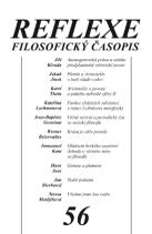Piromis Hall in Egyptian Thebes or Where Greek Historiography Begins
Greek philosophy, historiography and geography grow from the same roots: from Ionia of the 6. Century B.C. A a period - the Greek colonization and the social restructuralization of the Hellenic world having been completed - when a series of thinkers who tried to grasp the world in its unity, that is, to grasp its physis through its logos, appeared in the Ionic territory. Both historiography and geography of Ionic origin are based on the notion of oikumene which means the whole of earth inhabited by humans and on the vision of its unity. At the same time, observations of the unity of oikumene bring forth attempts to grasp its order, its constitution, and structure not only in space but in time as well.
Hecataeus of Miletus is considered a „forerunner of historiography“ it would be more propriate though to call him „pater geographiae“. As a „historiographer“, he fails to leave the sphere of myth which he tries to criticize and rationalize in order to make it plausible which - as a matter of fact - kills the living truth of myth. It seems the decisive role in Hecataeus’ thinking played his journey to Egypt: from then on, his confidence in the Greek tradition was shaken. Generally speaking, the Egyptian impact on Greeks, their self-knowledge and their orientation in oikumene should not be played down.
Anyway, in the end it shows necessary to find another way to a „true historiography“ and that’s what becomes a challenge for Herodotus. Though he began as a successor of the Ionian periegetic tradition - as far as the genesis of his work can be reconstructed - he stopped drawing on myth later and turned to recent history where he found an old pattern of the Greek-barbarian conflict (cf. Trojan war). Nevertheless, the segment of history mentioned above can be hardly grasped more critico only; a historian must try to discover its underlying meaning as well. Also, a comprehension of the nature of man and his relation to god is necesary. Both Heraclit and Plato seem to reason in a similar way.
Backlinks: Reflexe 23
